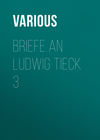Buch lesen: «Mrs. Whittelsey's Magazine for Mothers and Daughters», Seite 25
ONE-SIDED CHRISTIANS
How difficult a thing it is in the present day to find a well-balanced Christian! In this day of fits and of starts, of impulse and of action, a day of revolution both in thought and kingdoms, where is the man who is formed in all respects after the image of his Savior?—where the Christian, who, "being fitly framed together, groweth unto an holy temple in the Lord?" Many of the followers of Christ seem to have forgotten that His alone is the example after which they are to pattern, and are looking to some distinguished neighbor or friend, or to their own selfish and sensual desires, to inquire how they shall walk in this evil world. Many appear to have made an estimate in their hearts how little religion will suffice them—how little humbling of the spirit—how little self-denying labor for Christ and dying men. It may be they "do justly," and, in their own eyes, "walk humbly;" but their religion is of the negative sort. They are "neither extortioners, unjust, nor even as this publican:" they give to every man his due, and take good care to obey the precept—"to look every man on his own things, and not on the things of his neighbors." But they forget that "Love mercy" was a part of the triad! that the religion of Jesus is not a religion of selfishness, and that the Master has said, "Go ye out into the streets and lanes, and compel them to come in, that my house may be filled!" They forget His example who came down from heaven to suffer and die for guilty man; who went about doing good, and whose meat and drink was to accomplish the work which the Father had given him to do. They forget that one of his last acts was to wash his disciples' feet, saying, "As I have done to you, so do ye also to one another;" and, as if our selfish and proud hearts would rebel, he adds—"The disciple is not above his Master, nor the servant above his Lord."
This want of conformity to Christ is also shown in the speech of many of his followers. He who was the Searcher of hearts must certainly be expected to condemn iniquity, and condemn it severely; but how unwilling do we find him to pass sentence upon the guilty—how comforting and consoling to the sinner! To the offending woman he says—"Neither do I condemn thee; go, and sin no more." For his murderers he cries—"Father, forgive them; they know not what they do!" And must vain, erring man be more harsh towards his fellow-man than his Maker? "Blessed are the merciful, for they shall obtain mercy." "I came," says Jesus, "to seek and to save the lost!" therefore, who so lost but in Jesus shall find a friend? And shall it not be so with his followers, when they remember his words, "I have given you an example, that ye should do as I have done to you"?
In this day of the multiplicity of good works, and of trusting to them for salvation, it may seem strange for us to urge their necessity. But in speaking of those who lack the beautiful oneness in character and conduct which distinguished Jesus, we would not omit many who, having been educated in the full belief of the doctrine of "justification by faith," carry it to such an extent as to despise good works, and almost to look upon them as heretical. They set them down in their religious calendar as savoring of ostentation, and thus run into the opposite extreme, neglecting entirely the command of our Lord, to "Let your light so shine before men, that they may see your good works." They take a one-sided view of truth and duty, forgetting that "he who shall break one of these least commandments, and shall teach men so" (even by practice), shall be called the least in the kingdom of heaven. Could they but know, by sweet experience, the luxury of giving "even a cup of cold water in His name," they would never again refrain from the blessed work. Could they fully understand the words to be pronounced on the final day, "Inasmuch as ye have done it unto one of the least of these my brethren, ye have done it unto me," no earthly inducement would be able to deter them from obtaining a part in that commendation and reward. Did they but read with divine enlightening the parable of the good Samaritan, and hear the Master saying, "Go and do thou likewise," what possible excuse would remain for them for not obeying his command? They little realize that they may read and meditate and believe, and still remain very selfish and un-Christ-like; for if Christ had been possessed of their supineness, he would still have remained in heaven, and we and ours yet been in the bonds of wickedness. Christian mothers have greatly erred in not training their children to a life of Christian self-denial and usefulness. In their visits to the poor and perishing, they should early accustom their little ones to accompany them, thus overcoming that sensitive dread of misery in its various forms, so common to the young. They would thus be laying up for them a good foundation against the time to come—training them in the way they should go—guiding their feet into the imitation of that blessed One whom they hope soon to see them following. Of how many delightful hours have parents deprived their children, who have never taught them, by precept and example, the luxury of doing good! How many gracious promises in God's blessed word are yet sealed to them—promises for time and for eternity! Mothers, awake! to know more of Jesus, of his life, his example, and of the high and holy inducements which he holds out to you in his word, to be conformed to his image.
Original
LUX IN TENEBRAS; OR A CHAPTER OF HEART HISTORY
BY GEORGIANA M. SYKES
It was a beautiful winter-morning. The new fallen snow lay light and fleecy about the porch and on the evergreens before the door, and cushioned and covered all the thousand minute branches of the trees till they stood forth as if traced in silver on the deep blue of the sky. A sparkling, dazzling scene it was, which lay spread out before the windows of that comfortable family parlor, where the morning sunshine and the blazing wood-fire on the hearth seemed to feel a generous rivalry as to which should be most inspiriting.
There were children in the room, a merry group of all sizes, from the boy of ten years old to the little one whose first uncertain footsteps were coaxed forth by a lure, and cheered onward like a triumphal progress by admiring brothers and sisters. It was the morning of New-Year's day, which had always been held as a high festival in the family, as it is in many families of New England, all the merriment and festal observance elsewhere bestowed upon Christmas having been transferred by Puritan preferences to this holiday.
It was just the weather for a holiday—brisk and bracing. Sleigh-bells were jingling merrily, as the deep drifts of the road having been overcome, one after another of the families of the neighborhood had commenced their round, bearing baskets filled with gifts and pleasant tokens of remembrance, with the customary wishes and salutations of the day.
The young mother sat in the group of happy children, but she did not smile on them. Her hand rested fondly on one little head and another, as they pressed to her side with eager question or exclamation. She drew the little one with a quick, earnest clasp to her heaving bosom. Her tremulous lips refused to obey the impulse of her will; she left Edward's question unanswered, and abruptly placing Willie in the arms of his careful nurse, she rushed away from the gladness she could not bear, to the solitude of her own chamber. There she fell upon her knees and covered her face, while the storm of sorrow she had striven so hard to stem, swept over her. Amid groans of agony, came forth the low murmur—"'Write his children fatherless, and his wife a widow!' Oh, my God, why must this be? His children fatherless, his wife a widow!"
Soon came the quick sobs which told that the overcharged heart which had seemed ready to burst, had found temporary relief in tears; then followed the low moans of calmer endurance, and the widow's heart sunk back into all it had yet found of peace under this great bereavement, though it had been months since the blow fell; the peace of submission—"Not my will, but thine, O God, be done!" This time it expressed itself in the quaint words of Herbert;
"Do thou thy holy will;—
I will lie still."
Then came the mother's habitual recollection of her children. They must not bear the weight of this great sorrow in the days of their tender youth, lest the hopefulness and energy they would certainly need in after life should be discouraged and disheartened out of them. Edward is naturally too reflective; he dwells too much on his loss, and evidently begins to ponder already how so many children are to be taken care of without a father. Sensitive Mary feels too deeply the shadow of the cloud which has come over her home; her face reflects back her mother's sadness.
So, rising, the mother rang the bell, and gave directions that the children should be prepared for a visit to their grandfather's, and that the sleigh should be brought to the door.
"They must go," thought she, "I cannot bear them about me. I must spend this day alone;" and she bade Mary replenish the fire, and seated herself in the arm-chair by the window. What a sickness fell upon the sad heart as the eye roved over the cheerful winter landscape! Here were the hurryings to and fro of congratulation, the gay garments, such as she and hers had laid aside, the merry chiming of the many-toned sleigh-bells, all so familiar to her ear that she knew who was passing, even if she had not looked up. Here is Thomas with the sleigh for the children, and, preceding it, is Ponto in his highest glee—now he dashes forward with a few quick bounds, and turns to bark a challenge at Thomas and the horses—now he plunges into a snow-drift, and mining his way through it, emerges on the other side to shake himself vigorously and bark again.
Has Ponto forgotten his master? Ponto, who lies so often at his mistress's feet, and looks up wistfully into her face, as if he understood much, but would like to ask more, and seems, with his low whine, to put the question—Why, when his master went away so many months ago, he had never come back again:—Ponto, who would lie for hours, when he could steal an access to them, beside the trunks which came home unaccompanied by their owner, and which still stood in a closed room, which was to the household like the silent chamber of death. There had been for the mourner a soothing power in Ponto's dumb sympathy, even when, with the caprice of suffering, she could not bear the obtrusiveness of human pity.
Out trooped the merry, noisy children, well equipped with caps and comforters. Good Thomas arranged them on the seats, and wrapped the buffalo-robes about them, and encircling his special darling, a prattling little girl of three years old, with his careful arm, away they went, down the hill and out of sight.
With a sigh of relief, the mother drew her chair to the hearth, and resolved, for that one day, to give over the struggle, and let sorrow have its way. She dwelt on all the circumstances of the change, which so suddenly had darkened her life. She permitted her thoughts to run upon themes from which she had sedulously kept them, thus indulging, and as it were, nursing her grief. She recalled the thoughtful love which had been hers till it seemed as natural and as necessary to her as the air she breathed. She had been an indulged wife, constantly cared for, and lavishly supplied with everything that heart could wish. The natural sensitiveness of her temperament had been heightened by too much tenderness; she had been encouraged to cling like a vine, and to expect support from without herself. She was still young and beautiful. She was accustomed to be loved and admired by many, but that was nothing to her in comparison with the calm unvarying estimation in which she had been held by one faithful heart. How was she to live without this essential element of her life?
Then the darkened future of her life rushed over her like an overwhelming flood: the cares and duties which were henceforward to devolve on her alone; the children who were never to know any other parent but herself; never to know any stronger restraints from evil or incentives to good than she in her feebleness could exert over them. What would become of her boys as they grew older, and needed a father's wise counsels? She saw with grief that she was even less qualified than most mothers to exercise the sole government and providence over a family. She had been too much indulged—too entirely screened from contact with the world's rough ways.
How were the wants of her large family to be provided for with the lessened income she could now command? Pecuniary loss had followed close upon her great bereavement, and though this constituted but a small element in her sorrow, yet now that it came before her on the morning of this new year, it added yet another shade to the "horror of great darkness" which encompassed her. She knew that it must have a direct bearing upon her welfare, and that of her family.
Then she reverted to the New Year's Day of last year; the little surprises she had helped to plan; the liberal expenditure by which she had sent pleasure, for one day at least, into the dwellings of the poor, her generous gifts to her servants, which it had been a pleasant study to adapt to their several tastes and wants; the dependencies, near and remote, which she had used as channels for conveying a measure of happiness to many a heart. Now there must be an end to all this; she could be generous no more. Even her children, partly from her pre-occupied mind, had no gifts provided for them to-day. Was she not a "widow and desolate?"
"Desolate, desolate!" she repeated in bitterness of soul. She paused. A voice within her seemed to say—"Now she that is a widow and desolate trusteth in God." A moment after there came into her mind yet another verso, "And none of them that trust in Him shall be DESOLATE."
Could it be that she remembered the passage aright? Her Bible lay open on the table before her. She had that morning earnestly sought strength from it, and from communion with God before she could nerve herself to meet her children, and bear their reiterated salutations, heart-rending to her, "Happy New Year, mother"—"Mother, dear mother, I wish you a Happy New Year."
Now as she drew it towards her, and turned over its pages to verify the exactness of the words, it soon opened to the blessed thirty-fourth psalm, which has proved to many an anchor of hope when they cried to God "out of the depths."
"I will bless the Lord at all times;" Oh, surely not!—How could any one bless the Lord at such a time as this? Yet there it stood:—
"I will bless the Lord at all times; his praise shall continually be in my mouth." If others could do this, and had done it, God helping her, she would do it too. She, too, would bless the Lord, and speak his praises.
"My soul shall make her boast in the Lord." A feeling of exultation began to rise within her. Something was yet left to her. Her earthly "boast" was indeed broken; but why might not she, too, "make her boast in the Lord"?
Touched with living light, verse by verse stood out before her, as written by the finger of a present God. Humbled to the earth, overpowered by deep self-abasement and contrition of soul, she clung as with a death-grasp to the words that were bearing her triumphantly through these dark waves.
"They looked unto Him and were lightened." Was not her darkness already broken as by a beam from His face?
"This poor man cried, and the Lord heard him, and delivered him out of all his troubles."
"The angel of the Lord encampeth about them that fear Him, and delivereth them."
"The eyes of the Lord are upon the righteous, and His ears are open unto their cry."
"Many are the afflictions of the righteous, but the Lord delivereth him out of them all."
Who was this, that, under these comfortable words, looked peacefully upward? It was one who was learning to trust God; taught it, as most of us are, by being placed in circumstances where there is nothing else to trust.
It is not for us to portray all that passes in the human soul when it is brought into vivid communion with its Maker. It is enough for us to know that this sorrowful heart was made to exult in God, even in the calm consciousness of its irretrievable loss; and that before the sun of a day specially consecrated to grief had attained its meridian, the mourner came cheerfully forth from her place of retirement, while a chant, as of angelic voices, breathed through the temple of her sorrowful soul, even over its broken altar.
"Oh, taste and see that the Lord is good; blessed is the man that trusteth in Him."
"Oh, fear the Lord, ye his saints; for there is no want to them that fear Him."
The group of banished little ones was recalled, but while the messenger was gone for them, the mother in the strength of her new-found peace, had brought forth from that closed chamber the gifts which the fond father had designed for each of his children, and had spread them out in fair array on the parlor table. So it was New Year's Day to the children after all.
The trust of that mother in the widow's God was never put to shame. Her children grew up around her, and hardly realized that they had not father and mother both in the one parent who was all in all to them. She was efficient and successful in all her undertakings. Her home, with its overshadowing trees, its rural abundance and hearty hospitalities, lives in the hearts of many as their brightest embodiment of an ideal, a cheerful, Christian home. The memory of that mother, dispensing little kindnesses to everybody within her reach, is a heritage to her children worth thousands of gold and silver. Truly, "they that seek the Lord shall not want any good thing."
FILIAL REVERENCE OF THE TURKS
A beautiful feature in the character of the Turks is, their reverence and respect for the author of their being. Their friends' advice and reprimands are unheeded; their words are leash—nothing; but their mother is an oracle. She is consulted, confided in, listened to with respect and deference, honored to her latest hour, and remembered with affection and regret beyond the grave.
"My wife dies, and I replace her; my children perish, and others may be born to me; but who shall restore to me the mother who has passed away, and who is no more?"
Original
THE MOTHERS OF THE BIBLE
ICHABOD'S MOTHER
"Strength is born
In the deep silence of long-suffering hearts,
Not amidst joy."
The noblest characters the world knows are those who have been trained in the school of affliction. They only who walk in the fiery furnace are counted worthy the companionship of the Son of God. The modes of their discipline are various as are their circumstances and peculiar traits, but in one form or other stern trials have proved them all. They partake of the holiness of the Lord, because they have first endured the chastening of his love. They are filled with righteousness, because they have known the pangs of spiritual hunger and the extremity of thirst. They abound, because they have been empty. They are heavenly-minded, because they have first learned in the bitterness of their spirits how unsatisfying is earth. They are firmly anchored by faith, because frequent tempests and threatened shipwreck have taught them their need. The Master himself was made perfect through suffering, and with his baptism, must they who would follow him closely, be baptized.
While Hannah was undergoing at Ramah the discipline which wrought in her such noble qualities, there dwelt in Shiloh one of kindred spirit, who was called to endure even severer tests, inasmuch as that which should have constituted her happiness, was evermore the bitterest ingredient in her cup; what might have been her purest joys became her greatest griefs. She was a wife, but only in name. Of the serenity and bliss which attend on true wedded love she was deprived. Her bridal pillow was early planted with thorns, which henceforth forbade all peace. She was a mother, but her children were to be partakers of their father's shame, disgraced, and doomed to early death or lives of wickedness and woe. She seemingly enjoyed abundant privileges, but her trials as a child of God were deeper than all others. She dwelt on sacred ground, but alas! herein lay the secret of her sorrow. Had her home been among the thousands in the outer camps, it had not been so sadly desecrated. Her husband was the High Priest's son, and daily performed the priest's duty among holy things. Had he been a humble member of Dan or Naphtali, his crimes had not been so heinous. She lived under the shadow of the tabernacle; had her abode been farther from the sacred enclosure, she had not been daily witness to the heaven-daring deeds which made men abhor the offering of the Lord, and called for vengeance on her nearest and dearest. Her food was constantly supplied from the sacred offerings; had it been procured in ordinary ways, she had not been a partaker with those who committed sacrilege.
No trifling vexations, no light sorrows were hers; and as might be expected, her virtues bore their proportion to the purifying process to which she was subjected. Disappointed in her earthly hopes, she clung to her God, and fastened her expectations on Him. Humiliated in her human relations, she aspired to nothing henceforth but His honor and glory. Wounded in heart, her wealth of love despised, lonely, deserted, she sought in Him the portion of her soul, and her lacerated affections found repose and satisfaction, without the fear of change in His unchanging love.
It is often so ordered in the Providence of God, that those who have borne the yoke in their youth, live to see days of comparative quietude and exemption from trouble. Hannah, after the birth of Samuel, appears to have passed the remainder of her life in peace and prosperity. But the nameless woman whose memorial we record had no respite. Her life was a life of endurance, and she was cut off in the midst of her days by a most fearful and agonizing stroke.
Israel was as usual at war with the Philistines. The army had pitched beside Eben-ezer, "And the Philistines put themselves in array against Israel: and when they joined battle, Israel was smitten before the Philistines." Alarmed and distressed by this defeat, the Israelites vainly imagining that wherever the ark of God was, there He would be also with his favoring presence, sent up to Shiloh to bring from thence the sacred symbol. With great pomp and solemnity it was borne by the Priests and Levites, and uproarious was the rejoicing as it entered the camp, but no account is given of the feelings of those who remained near the deserted tabernacle. Did the aged Eli forbode that the awful event which should signal the fulfillment of prophetic woe against his family was about to befall? Did the abused wife dream that she should behold no more her husband's face? We know not what of personal apprehension mingled with their trouble, but we do know that with trembling hearts these faithful servants of God awaited tidings of the ark of his covenant. How portentous soever might be the cloud which hung over their own happiness, they deemed it of small importance in comparison with the honor of Jehovah. The messenger came, but who shall portray the scene when he rendered his tidings!
In a darkened chamber, whither death, clothed in unwonted horrors, has suddenly come for the fourth victim of that doomed family, lies the subject of our meditations, panting under his iron grasp. The afflictions of her life are now consummated. The husband of her youth, his follies and faults against her, now are forgotten in the bitter thought that he is dead, has gone unrepentant to the bar of God to give account of his priesthood—her venerable father-in-law alone, with no friend to cheer his dying agonies, has also departed from earth—her people are defeated in battle, and worse than all, the ark of God is fallen into the hands of the uncircumcised Philistines—who doubtless glory as if Dagon had conquered the invincible Jehovah. What to her are the pangs and throes under which her tortured body labors? She heeds them not. Pitying friends endeavor to rouse her from her dying lethargy, by the most glad tidings a Hebrew woman could learn, "Fear not; for thou hast borne a son!" But she answers not. Shorter and shorter grows her breath—nearer and nearer she approaches the eternal shore. But she is a mother, and though every other tie is sundered, and she is dying of the wounds which the cruel breaking of those heart strings has caused, she feels one cord drawing her to her new-born child, and asks that he may be brought. It is too much! Why was he born? No cheering thought comes with his presence. Nor joy nor honor are in store for him. Call him Ichabod, (without glory) she gasps with feeble accents, "for the glory is departed from Israel: for the ark of God is taken." A moment more and her freed spirit is in His open presence, who she deemed was forever departed from her people.
Christian friend, you who are walking through desert places, and perhaps fainting under the heavy hand of God, let not your heart fail you. Shrink not back from the path, though it seem beset with thorns. Some good is in store for you. Affliction, indeed, is not for the present joyous but grievous, nevertheless afterward it yieldeth the peaceable fruits of righteousness. If, like the mother of Ichabod, you learn to forsake the turbid waters of earth for the Fountain of eternal love—if you make the Lord your portion, you will not in the end be the loser, though wave on wave roll over you and strip you of every other joy. No, not even if at length your sun shall set in clouds impenetrable to mortal vision. A glorious cloudless morning lies beyond, and you shall be forever satisfied with Him who has chosen you in the furnace of affliction.
"Then rouse thee from desponding sleep,
Nor by the wayside lingering weep,
Nor fear to seek Him farther in the wild,
Whose love can turn earth's worst and least
Into a conqueror's royal feast;
Thou will not be untrue, thou shall not be beguiled."




















